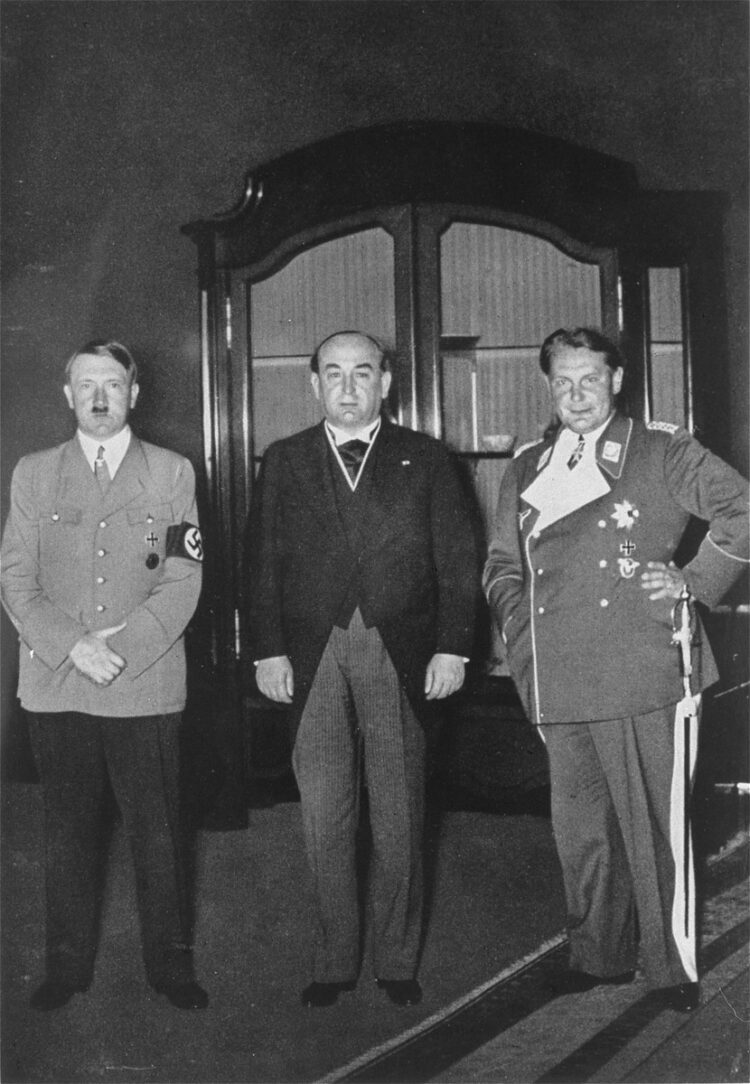A locomotive belching white smoke pulls into a train station in Budapest carrying the decorated coffin of Gyula Gombos, the prime minister of Hungary from 1932 until his death four years later. An honor guard and a solemn crowd greet the train.
So begins Eva Gardos’ Budapest Noir, a moody, fast-moving Hungarian-language film with English subtitles which takes place in the waning months of 1936.
Now available for viewing on the ChaiFlicks streaming platform, its central character is Zsigmond Gordon (Krisztián Kolowatnik), a newspaper reporter covering the event for a local daily. He claims in a somber voiceover that Gombos — a rabid anti-communist with antisemitic inclinations — intended to transform Hungary into a fascist state with himself as its dictator.

A chain-smoking cynic addicted to bourbon and sardonic observations, Gordon thinks there is no such thing as objective truth. After filing his story on Gombos’ grand funeral, his interest is aroused by the murder of a young woman whom he briefly met at a cafe.
She turns out to be a prostitute who was two months’ pregnant when she was found dead with a Jewish prayer book in her possession. Much to his suspicion, her corpse in the morgue has vanished. Still more troubling, the chief of police advises him to drop the story.

Unintimidated by the warning, Gordon, given to wearing a trench coat and a fedora, presses on valiantly. He is assisted by his former girlfriend, Krisztina (Reka Tenki), a photographer who has just returned from an assignment in Nazi Germany.
Budapest Noir unfolds against the backdrop of Hungarian-style antisemitism, which reached a crescendo in the late 1930s, when Hungary passed draconian antisemitic laws, and during the German occupation from 1944 to 1945, when more than 400,000 Jews were deported to the Auschwitz-Birkenau extermination camp in Poland.

Rather than referencing these catastrophic signposts, Gardos confines herself to 1936 and zooms in on a nightclub, where an angry man throws a glass at a singer.
“How dare you play that Jewish crap for Hungarians,” he shouts. Grabbing the performer by the neck, he screams, “How dare you play Jewish music for us.” Confronting the nightclub owner, the antisemite exclaims, “Your place is a Jewish rat’s nest.”
This outrageous outburst of anti-Jewish venom is not a dominant theme in Gardos’ movie, but it lurks menacingly beneath the surface, waiting to explode.
As Gordon digs deeper, he learns the late prostitute’s name and reaches the conclusion that very influential men were involved in her life. This supposition emboldens and drives him on. His enemies retaliate, hiring a thug to beat him almost to a pulp.
Bumping up yet closer to the unvarnished truth, Gordon discovers yet more facts about the deceased hooker.
Toward the denouement, a Jewish newspaper vendor informs Gordon he is leaving Hungary due to the upsurge of antisemitism. Gordon, seemingly oblivious to the rising tide of anti-Jewish hatred, believes his fears are overblown. “This is Budapest,” he says in an allusion to its seemingly cosmopolitan values and atmosphere.
Little does he know what awaits Budapest and the rest of Hungary.
